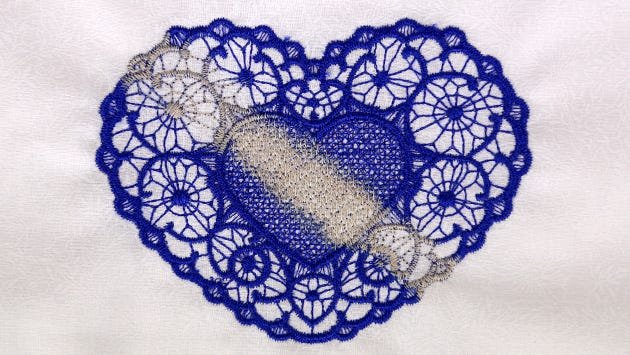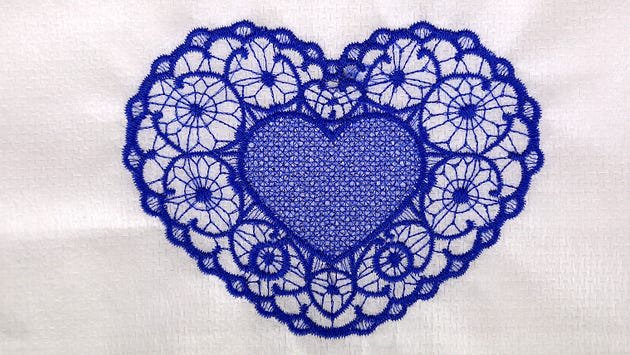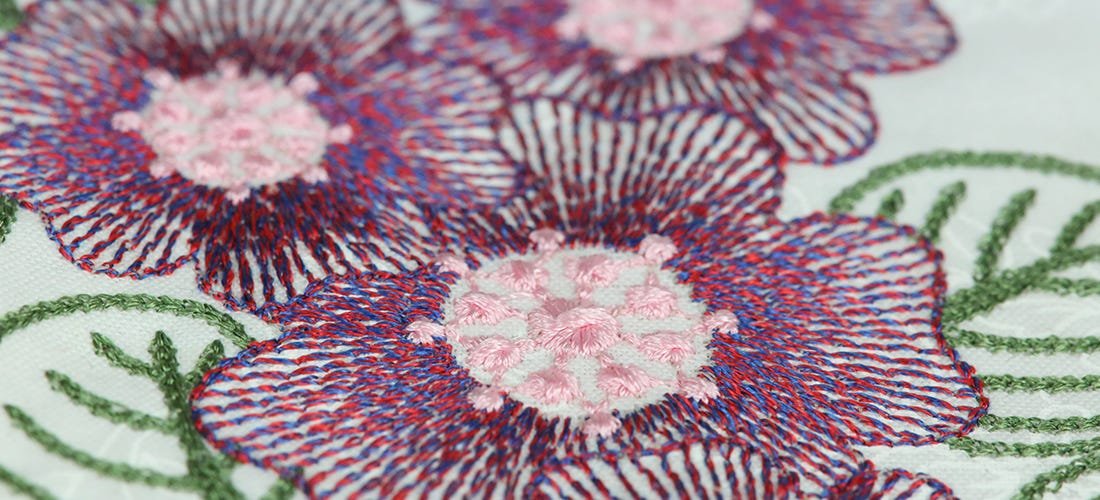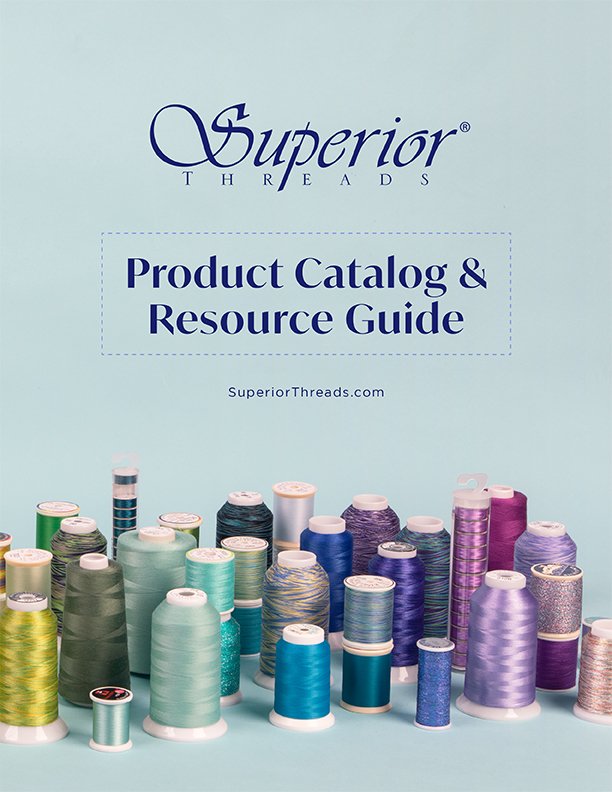Superior Education
RAYON THREADS
- EMBROIDERY
- TRILOBAL POLYESTER
- COLORFAST
Why doesn't Superior sell rayon threads?
Occasionally, we are asked why we do not have any rayon thread in our thread catalog. After all, rayon is the most commonly used thread in the embroidery industry, is relatively inexpensive, and has a beautiful sheen. The answer is because rayon is a weak thread and is usually not colorfast. It is not a recommended quality fiber for quilting or embroidery. While rayon has a place in mass-produced embroidery enterprises (because of it's inexpensive price), it's not a thread type that we use or recommend.
What is rayon made from?
Cotton threads are made from a natural fiber, cotton, that is processed, twisted, spun, and dyed. Polyester threads are made from synthetic materials, extruded and twisted, spun, dyed, and processed. Rayon is a blend of nature and manufacturing. Commonly referred to as viscose rayon, the textbook definition of rayon is "a manufactured fiber composed of regenerated cellulose." That's a technical description to explain that rayon is made from wood pulp that when mixed with chemicals and processed. The most common source of cellulose required in the creation of rayon is wood pulp, which is produced from timber. After the bark has been removed, the wood is chipped into very small pieces, boiled under pressure, chemically treated, washed, and then dried. The final state of this material is now viscose rayon. It's a stretch to say that rayon is a natural thread, because of the amount of chemicals involved in breaking down the wood pieces into cellulose.
The images below show what happens when rayon and polyester threads are exposed to brightening agents. In this case, a design was embroidered using rayon thread as the top thread and our Bottom Line polyester thread in the bobbin. Bleach was rubbed across the surface of the design and the results were photographed.

The effects of bleach on rayon thread

Polyester bobbin thread does not react when bleached
Is rayon colorfast?
The answer to this question depends on who you ask and what definition of colorfastness they subscribe to. Colorfastness is the term used to gauge a textile's color resistance to fading or bleeding. Whether it is thread or fabric, any textile that is dyed with have a colorfastness rating. A rating of 1 means the color fades or bleeds easily and a rating of 5 means the color does not fade. A colorfastness rating of 4 is considered excellent and most threads fall into this category. Some fabrics and materials that have UV coatings will achieve a rating of 5, but most materials, including threads and clothing fabric, have a rating of 3-4.
Some thread manufacturers state the colorfastness of their thread in generic terms, to make it easier to understand. It can get tricky here, as a few companies state that their rayon threads are colorfast, because they do not fade in cold or hot water. This isn't how we define colorfastness. If you wash your embroidered project with strong detergent or have an additive such as brighteners, chlorine or bleach, rayon threads can bleed. The color will leech out of the thread and stain the fabric. If you've ever bought a t-shirt or hat that is embroidered with shiny thread and when you wash it the color has faded or bled, it's because the thread used is rayon. When it comes to rayon threads, test a variety of washing conditions before you start stitching with it.

What thread should I use instead of rayon?
If you love the sheen that rayon offers but want a stronger, colorfast thread, we recommend trilobal polyester threads. Magnifico is made of high-strength polyester filaments and has a gorgeous sheen that mimics the luster of rayon. The cost of a quality trilobal thread is nearly on par with rayon threads and the benefits are so much greater. You can stitch at higher speeds and tighter tension due to the high tensile strength of our trilobal polyester threads. Our trilobal polyester threads are available in solid, dual-colored, and variegated colors. Enjoy the benefits of trilobal polyester thread on your next embroidery project.

 View Our Product Catalog
View Our Product Catalog